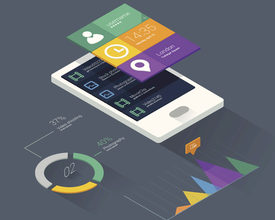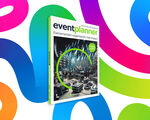Let me tell you what makes an event manager go crazy: buying an expensive, fancy event app, and then realize that nobody is using it. It's quite frustrating to believe all the beautiful promises about how the app can engage the attendees or help you go paperless, only to understand later that it fails to grab the attention of your audience.
And as the statistics show, the perspective is not promising. According to Google, 25% of installed apps are never used and 26% are abandoned after the first use. However, you can't ignore event apps completely. With more than 86% of planners declaring that they will use an event app, it would be unwise to discard this incredible tool.
So what can you do? There's just one answer: choose your event app carefully. Here are some tips about how to do it.
1. Take the app for a 'test drive' and assess its user-friendliness
Before purchasing an event app, ask for a trial version and check if it’s worth your money. You don’t have to be a mobile developer to evaluate if an app is easy to use or not. Put yourself in the shoes of an attendee and see if he or she would enjoy using it. Ask yourself the following questions: Is the app simple to install? Is it intuitive? Is the interface easy to understand and navigate? All these aspects (and more) count when it comes to a pleasant mobile experience, so make sure you purchase a user-friendly and intuitive event app.
Quick takeaway: Pay attention to how you feel while testing the app. If you get frustrated because it takes too long to figure out how to use it, don’t bother spending more time on it. It’s not a user-friendly app and it will probably annoy your attendees, which will shadow the general experience of your event.
2. Know the reasons why you want to purchase an event app
The event industry is flooded with multiple apps that have an incredible number of options. Yet, knowing exactly what you need from an app can help you find the perfect one. Of course, there are the 'all-inclusive' apps that try to cover every aspect, such as registration, accreditation, documentation, networking, etc.
However, by doing your research, you’ll find that the market has to offer different types of event apps. For example, if you want to enrich your event with survey polls or livestream integration, you'll have to choose one type of apps. For a different set of options, you’ll have to check other mobile applications.
Quick takeaway: Knowing what you need from an event app is not enough to make the attendees interested in actually using it. However, if you communicate its value correctly and you create the right circumstances for its use (such as accomplishing tasks during the event or participating in group activities), you'll be amazed by how willing people are to unlock their smartphones and give it a try.
3. Avoid the event apps that have too many options
It may seem that the reasonable thing to do is to purchase an event app that has multiple options and provides a platform for everything. However, a minimalist approach is desirable if you want to achieve a higher usage rate of the app. And here's why: we live in an information-overloaded society. During an event, attendees receive multiple messages and notifications. They access their social media and email accounts. They also check the news or other sites of interest. Now imagine that apart from that, they have to navigate a complex event app interface with lots of pointless options such as note taking. Let’s be serious: with so many other amazing note-taking apps, who will use this option that’s “squeezed” into the event application?
Quick takeaway: When deciding what event app to purchase, go for the one that has few, yet well-defined options. Don’t choose an app by the principle: "Maybe the attendees will need this option". They won't need it unless you create a special context for them to use it.
Wrap up
Before purchasing a good event app, decide what your goals are and how this tool can help you achieve them. Choose wisely and test the application, putting yourself in the attendee’s shoes. The key is to assess if the app is easy to use or not. Be aware of the feelings you experience while testing it. And finally, choose an event app that won't overload the attendees with unnecessary information or options.








